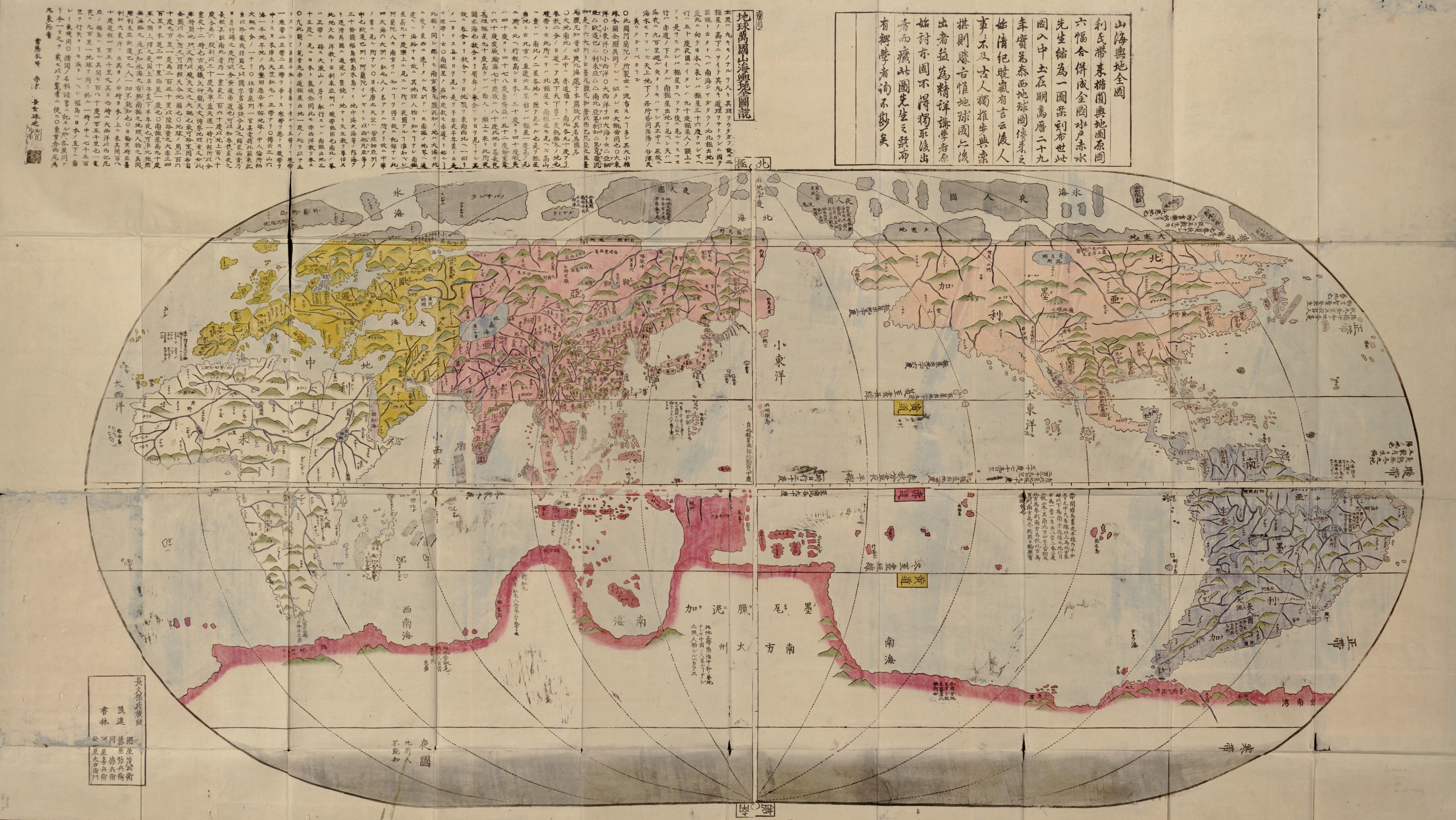
Published 2021-02-03
Keywords
- Global history,
- global historians,
- power,
- Anglosphere,
- publishing
- languages,
- gender,
- elite institutions ...More
Abstract
This article is authored by a group of PhD researchers at the European University Institute (EUI) and two teachers as part of the PhD seminar in Global History held in the Fall of 2020 during the COVID-19 pandemic. We consider three topics: ‘The politics of global history’ thinking about global history as a form of activism; ‘Whose global history?’ considering issues of property and sharing; and ‘An open global history’ proposing a utopian future (for a troubled present). We believe that in order for global history to thrive, its practitioners need to be more inclusive and acknowledge imbalances of power across world areas, across genders, and across career stages.
Image Caption: Sekisui Nagakubo after Matteo Ricci, Sankai Yochi Zenzu (山海輿地全圖) (Naniwa, 1785). Library of Congress Geography and Map Division Washington, D.C.


